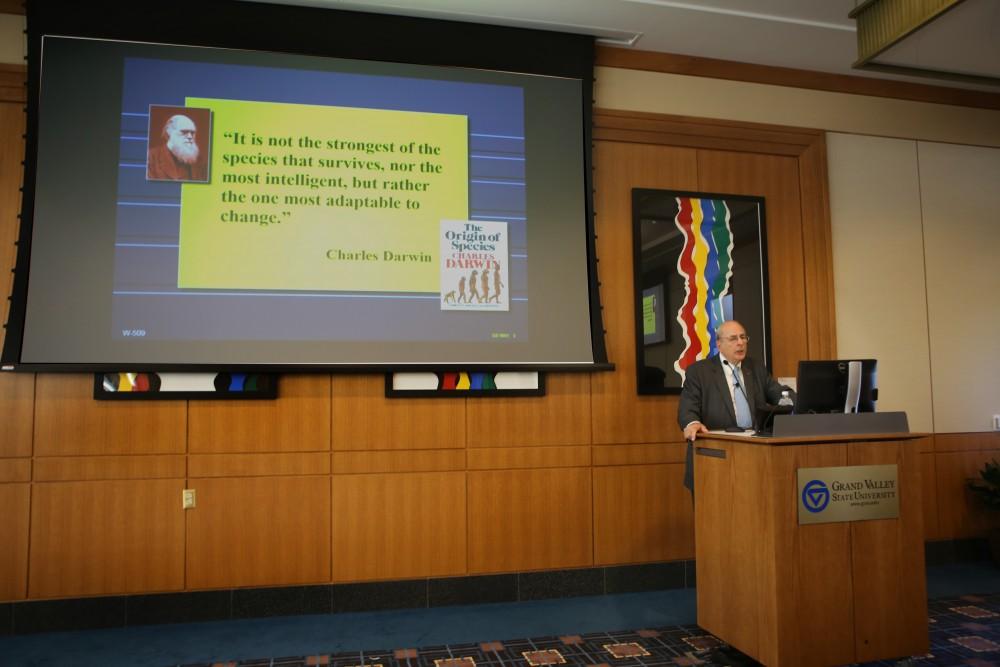Former CEO visits GV

GVL / Marissa Dillon Norman L. Augustine speaker for the Meijer Lecture
Sep 24, 2014
Norman Augustine, former CEO of Lockheed Martin Corporation, spoke on leading change to a crowd of students and others at the L. William Seidman Center on Grand Valley State University’s Pew Campus on Tuesday.
The GVSU Frederik Meijer Honors College sponsored the event as part of their annual lecture series, which is in its fifth year. Jeff Chamberlain, the director of the Honors College, said these lectures “allow us to listen to fascinating people.”
“The man we have speaking tonight does not pale in comparison to the others that we’ve had,” Chamberlain said. “His accomplishments are legion.”
Chamberlain added that a liberal arts education is valuable for students to understand the world in which they live.
“(Augustine has been) so broadened by his experiences and by the people he has gotten to know in his own education,” he said.
Paul Plotkowski, the dean of the GVSU Seymour & Esther Padnos College of Engineering & Computing, called Augustine “a contemporary Renaissance man” for his diverse background and experience. Plotkowski introduced Augustine as an aerospace expert, business leader, government player and award winner.
Augustine graduated from Princeton University with a degree in engineering and a head for business.
“There are many people today questioning higher education and its value,” Augustine said. “And I am not one of them. It’s the liberal arts that gives you the breadth and the foundation to decide if you should do something and what you should do.”
He recognized that change is inevitable, but he said there are opportunities to use change in a good way, particularly in business settings.
“If you don’t change it, someone else will,” he said. “Change can be driven by many things, it can be technological. It can be changes in laws or social behaviors.”
A personal example Augustine gave was his involvement in the creation of the more modern Lockheed Martin, which occurred around the time the Berlin Wall came down and the Soviet Union collapsed in the late 1980s. He explained that they bought another major company and started saving and borrowing everything they could to buy more companies. This company would soon become the largest defense contract in the world.
“There were many who thought we were crazy,” Augustine said. “But, you need to be committed to making change. Set inspiring and challenging goals and have a strategy – the simpler, the better.”
Another way to embrace change involves taking risks, which Augustine said have to be rational and calculated in order to succeed. He used the example of mergers and acquisitions, often a risky business but an essential one to the survival of Lockheed Martin and other major corporations.
In addition to his advice on how to create change, Augustine offered some tips for how to become a leader. He said clear and honest communication is the most important. Plus, leaders should remember that communication is a two-way street that involves both talking and listening.
“The people are a lot more important than the organization,” he said. “It’s important for the leaders to get out front, especially in times of crisis. How you respond to it is your choice.”






















